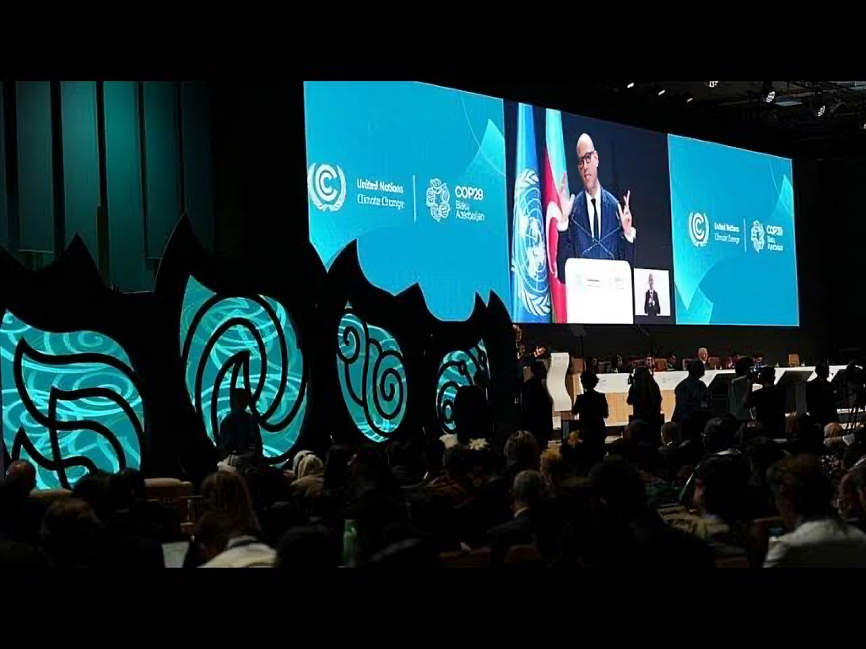KEY POINTS
- Developing countries require $1 trillion yearly to combat climate change.
- Political disputes, including Argentina’s withdrawal, hinder climate negotiations.
- Development banks plan to increase climate funding to $120 billion by 2030.
Countries at the COP29 summit are working to secure $1 trillion in annual funding to help poorer nations fight climate change. However, political tensions and disagreements have made progress difficult, with Argentina pulling out of the talks on Thursday.
Developing countries say this funding is essential to deal with the effects of climate change and meet ambitious climate goals ahead of next year’s COP30 in Brazil. Economists warn that the amount needed could rise to $1.3 trillion annually by 2035 if action is delayed.
The previous target of $100 billion per year, which was only fully met in 2022, expires this year. Negotiators are now focused on creating a new funding framework to support vulnerable nations.
Tensions overshadow climate action
According to a report by Energy News Africa, Political conflicts have added to the challenges at COP29. Argentina withdrew its delegation, with government officials citing the need for policy reviews. The decision follows President Javier Milei’s controversial claim that climate change is a “hoax.” Critics say the move could harm Argentina’s reputation in global climate efforts.
France also made headlines when its climate minister canceled her trip following comments from Azerbaijan’s president, Ilham Aliyev. He accused France and other Western nations of hypocrisy for their continued reliance on fossil fuels while pushing other countries to take action.
Despite these tensions, COP29 Lead Negotiator Yalchin Rafiyev reminded participants, “The clock is ticking.”
Searching for climate finance solutions
Wealthy nations, development banks, and private sector investors are exploring ways to meet the funding goals. Major development banks, including the World Bank, have pledged to increase climate financing by 60% by 2030, reaching $120 billion annually, with an extra $65 billion expected from private investments.
Azerbaijan announced a $1.2 billion commitment to support low-carbon projects within the country. However, many Western governments remain hesitant to commit large sums, and the potential withdrawal of U.S. funding under the Trump administration adds further uncertainty.
As the talks continue, countries must find a way to bridge their differences and secure the resources needed to help the world’s most vulnerable nations. Without unity, the chances of success at COP30 in Brazil next year remain uncertain.



